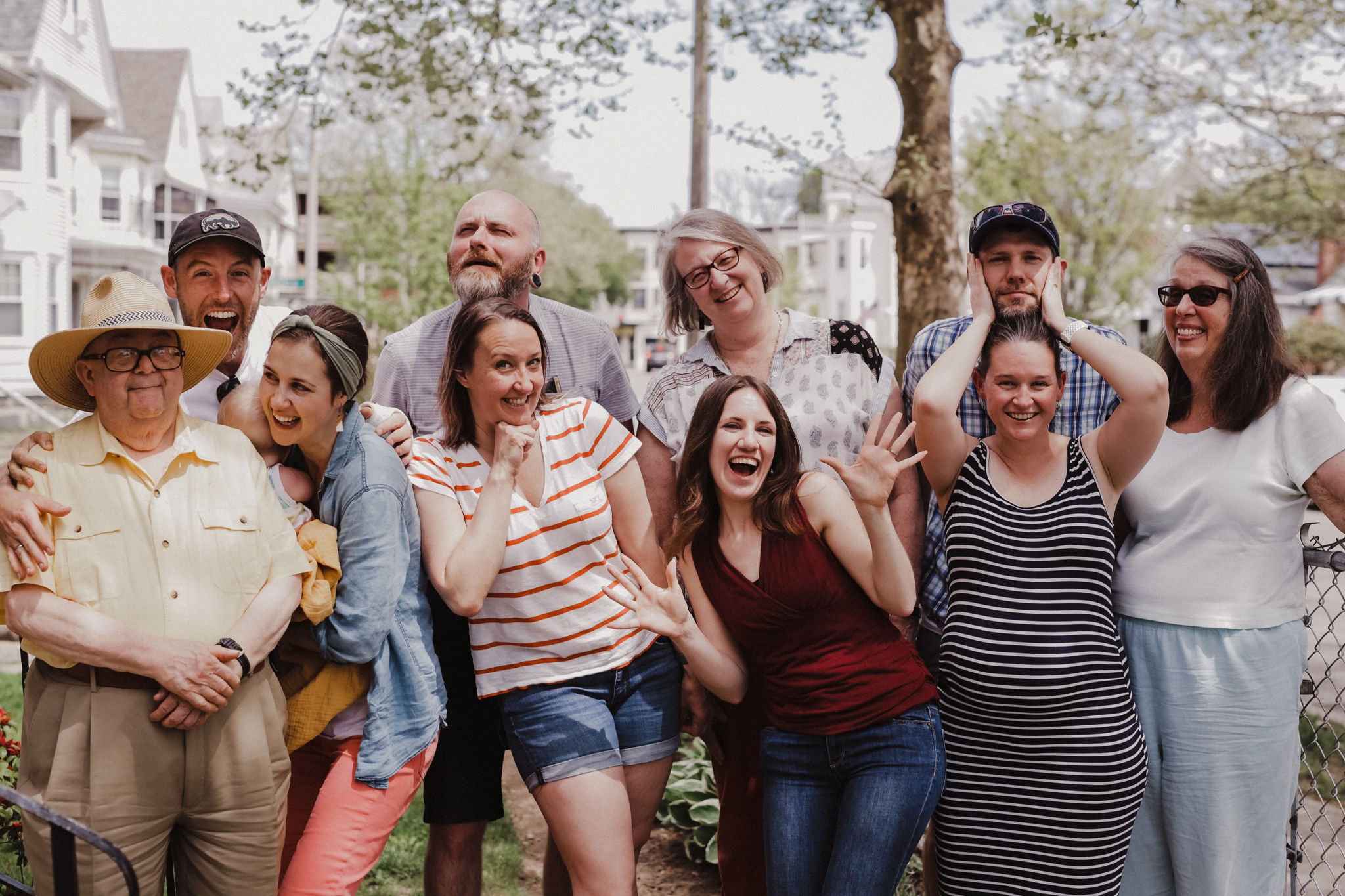Not That Kind of Racism
Not That Kind of Racism
How Good People Can Be Racist Without Awareness or Intent
By Megan Lietz
Megan Lietz, MDiv, STM, directs Racism Education for White Evangelicals (ReWe), a program of EGC’s Race & Christian Community Initiative. The intended audience of ReWe ministry and writing is White Evangelicals (find out why).
In the tragedies of Charlottesville, VA, as a White person, it’s easy for me to see such hate and think, “How awful! That’s racist. Thank God I’m not a racist like that.” In doing so, I affirm my sense of being a good moral person and find comfort in the fact that I’m not like those I’m condemning.
In reality, White people cannot separate ourselves from the problem of racism. Even if we consciously reject racism, the biases and behaviors that contribute to and sustain injustice crop up in our actions. Racism persists not because of the hate of a few White supremacists, but because well-intentioned White people regularly contribute to racial inequity in ways that we may not be aware of or intend.
Expanding our View of Racism
Institutional and structural Racism
While interpersonal racism between people is still common, racism occurs as much if not more at the organizational and systemic level, which can be more difficult for White people to recognize.
For example, people with Black-sounding names are 50% less likely to get called for an interview compared to people with White-sounding names. This bias is one of many contributors to vast disparities between the median net worth of White people as compared with Black people or Hispanic people.
Implicit Bias
How we see and respond to situations is shaped by unconscious personal biases and stereotypes. We all have them, and they don’t necessarily align with our explicit beliefs. These can come out in casual interactions that can make people of color feel disrespected or devalued. They can also have a broader impact when shaping the decisions of policymakers, the prescriptions of doctors, or the actions of law enforcement agents.
To perpetuate racism, people don’t have to be ill-intentioned, or even aware they are contributing to injustice. By not actively resisting racist dynamics—and sometimes even by attempting to do so without proper understanding—we can contribute to a system that sustains inequality and racism.
Reflecting On Our Experiences
White people need education and reflection to see how we may be participating in injustice. We must look inward with openness, intentionality, and humility.
I’ve uncovered racism in my own life—how I’ve participated in it, benefited from it, and perpetuated it—which I share below. May my examples inspire your reflection, awareness, and action.
MY INSTITUTIONAL RACISM
Institutional racism is discriminatory rules, policies, and practices within organizations or institutions.
I’ve supported businesses known to treat people of color in unfair ways because using their services was convenient for me.
I’ve encouraged ways of thinking and doing that reflect my culture. For example, I feel that a meeting has gone well if we’ve followed my linear-thinking agenda, avoided conflict, and produced certain kinds of outputs. I tend to devalue people who don’t excel in the skill sets I value and prefer to work with people who think and act like me. If the leadership of my organization shares my lens on what “being effective” or having a good meeting looks like, I’ll thrive while people from other cultural experiences, who may have their own methods and practices for effectiveness that are just as valid, will be at a disadvantage.
My Structural Racism
Structural racism is persistent racial injustice worked into and maintained by society.
Media and historical narratives that paint White people as dominant leaders and valuable assets have shaped my self-perception. I have assumed my presence and leadership is desired even in spaces where racially I am in the numerical minority. I’ve had to learn to be intentional about taking a support role.
Because, historically, people of my skin color have had economic opportunities unavailable to people of color, my family and I had the financial resources to buy a home—one in a predominantly Black neighborhood. While we moved with the intent to learn from and invest in our community, we also contributed to gentrification and its associated displacement.
My Implicit Biases
Implicit biases are unconscious personal biases and stereotypes.
White ideologies have shaped in me a pro-White view of how the world works. I grew up with the belief that people can succeed if they try. As a result, when I interact with people of color who are struggling, my initial reaction may be that they need to work harder, must be doing something wrong, or don’t have what it takes, rather than considering the impact of systemic racism.
After hearing a Black man talking about the ways he loves and cares well for his daughter, I found myself being especially encouraged. Upon further reflection, I realized that I wouldn’t have had the same response to a White man because I would’ve expected him to be a good father. Sadly, my encouragement came from an expectation that men of color are less likely to be involved fathers.
I spoke Spanish to a woman who appeared to be Hispanic/Latino, assuming it was her first language. Though this was my attempt to value her culture, she could’ve perceived it as reflecting a belief that people from her ethnic group don’t speak English, or must speak Spanish.
A Call to Self-Reflection
In acknowledging ways we’ve been perpetuating racism, we need not label ourselves as bad people. We need not declare we are “a racist,” in the sense that we often use that label—as a damning marker of our identity.
But we must admit that we can, and often do, perpetuate racism. We can have a racist impact, even without intent or awareness.
Acknowledging our potential for racist impacts is the first step in changing our thoughts and behavior. We can lead in our spheres of influence by first changing ourselves.
Exploring our racist tendencies isn’t an easy journey. But we can make real progress, one step at a time, empowered by God’s grace. I invite you to join me in self-reflection.
Reflection Questions
How do any of my life’s examples of institutional or structural racism resonate with your experiences?
As you discover any unjust attitudes or behaviors, how might you want to connect with God about it—in expressing lament or confession, in seeking wisdom, forgiveness, courage, or hope? What does the Gospel mean for you in this moment?
Do you notice attitudes or behaviors in your workplace, church, or other groups you participate in that contribute to racial disparity and division? With whom could you share your concerns?

















